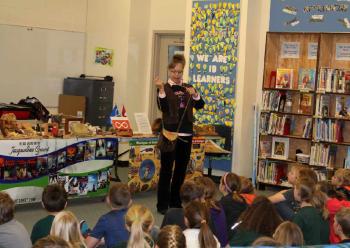Image Caption
Summary
By Shari Narine
Windspeaker Contributor
EDMONTON
Indigenous writers are the focus of two new ventures, but not everybody sees the upside.
Recently, the Writers’ Guild of Alberta put out the call for an Indigenous researcher to examine documents and conduct interviews to determine “what are best practices—processes, procedures and staff training needs—for creating new relationships with Aboriginal writers; what are the unique needs of Aboriginal professional and emerging writers; and what innovative programs might be implemented as a result of this research.”
Best practices are also the focus of the Writing Stick 2017 conference to be hosted at the University of Alberta in mid-June. The conference is intended to “foster conversations on editing and publishing Indigenous stories and writers.”
But the focus on Indigenous writers doesn’t sit well with Guest, who is quick to say she is a “writer who happens to be Métis” and not a “Metis writer.”
“I’ve got this bee in my bonnet where I’m a firm believer everybody should be treated equally and that includes writers,” said Guest, a recipient earlier this year of the Order of Canada for her work as a children’s author. “I don’t like this attitude that Aboriginal people are children of a lesser God. We are not.”
Guest said she’s “going around and around” with the Writers Union of Canada over membership dues. When she went to renew her membership, she found a box to check in the “citizenship” section that allowed her to pay a significantly reduced membership fee if she identified as an Indigenous person.
“Aboriginal people are being singled out because of the colour of their skin, because of their ethnicity. That’s racism. You can dress it up any way you want, that’s racism,” said Guest. “We are all capable of looking after ourselves. We are not disadvantaged people. We are strong Canadians.”
Email and on-the-phone discussions with Writers Union personnel resulted in no change. Indigenous people are still being offered a $50 annual membership instead of the regular $205 membership fee.
“It should simply be a matter of if you need financial assistance, prove that you need financial assistance and you’ll get a reduction for two years,” said Guest.
Guest also holds that Indigenous writers do not need special programming, like what the Writers’ Guild of Alberta is examining.
“I don’t think Indigenous writers are any different from other writers. I think that they should be open to all programs. Don’t limit yourself,” she said. “If we start doing that, I think we’re starting from a lesser position, a limited position.”
As far as Guest is concerned, funding acquired by the Writers’ Guild for any new services or programs should be open to all writers.
But Tanya Ball, a member of the steering committee for the Writing Stick conference, applauds the Writers’ Guild for examining the possibilities of specific programs and services for its Indigenous members.
“I think that’s amazing,” she said. “Anywhere that they’re going to be encouraging Indigenous programming, absolutely, I would definitely be for, as long as it’s from an Indigenous perspective, of course, or someone who is aware of everything.”
Providing a voice is what the Writing Stick conference is about, said Ball, who is Métis from St. Ambrose, Man. She is a recent graduate of the Masters of Library and Information Studies at the University of Alberta, and employed by the Edmonton Public Library.
The conference is a result of a conversation between Linda Cameron, director with the University of Alberta Press, and UAlberta head librarian Gerald Beasley. They were looking for a way to respond to the calls to action set out by the Truth and Reconciliation Commission.
The conference is intended to make connections and open dialogue between Indigenous and non-Indigenous publishers, editors, writers, storytellers, filmmakers, academics, translators, artists, librarians, and students to start the process of establishing best practises.
“The intention here is to work together and approach things in a more harmonious way,” said Ball.
It was in working on the Writing Stick conference committee that Writers’ Guild executive director Carol Holmes began thinking there may be more her organization could be doing for Indigenous writers.
“One of the goals of the guild has always been to try to be a community of writers. And one of the things I think that has sort of been on our strategic plan … is to make sure we have a broader representative distribution in our membership so we do address the community of writers …in Alberta.” Holmes notes that the Saskatchewan Writers’ Guild partners with the Saskatchewan Aboriginal Writers Circle and with the Saskatchewan Human Rights Commission.
The Writers’ Guild of Alberta and Access Copyright Foundation are jointly funding the 100 hours of research that is to be undertaken with a report of the findings and recommendations presented to the board at the end of August. Holmes says the researcher may determine that no programs or services are needed for Indigenous members.
“I’m not completely sure,” said Holmes, but she wants to find out.

